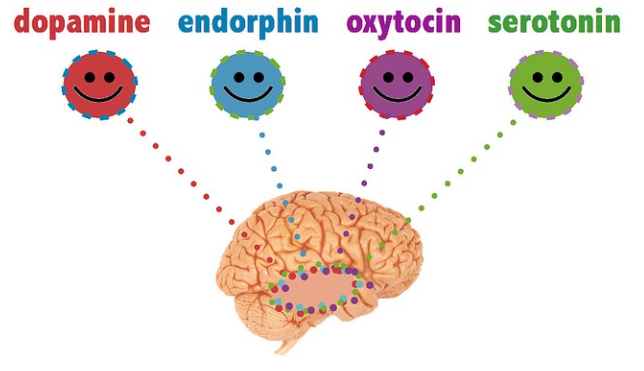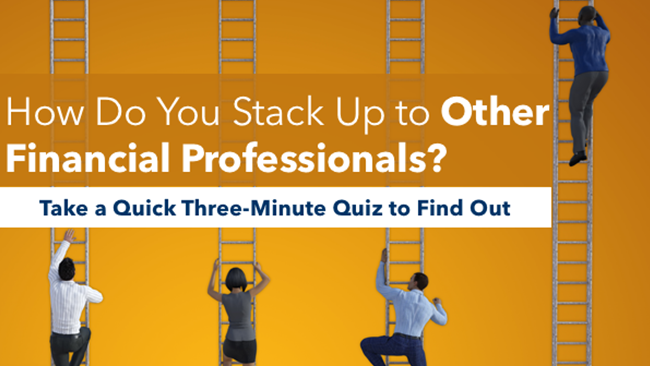Let me tell you a story...
Good storytelling grabs your attention, draws you in, and compels you to read more. What you might not know is WHY storytelling works so well, and how telling a story in the right way can help you convert more prospects to clients during your sales process.

What makes a good book, movie, or TV show?
It's one that takes us on a compelling journey -- where we experience emotions like we're actually part of the story.
Take reality competition shows. When I sit down to watch one, whether it’s MasterChef or The Voice — Sure, I like the competition aspect, but what really draws me in is when they flash to the singer or the home cook’s life before they came on the show. Were they broke? Were they battling a disease that affected their everyday life? Working at a job they hated? Whatever it is, I want to know about the roadblocks they’ve run up against in their journey to pursue their passions until they eventually arrive at the competition. Through these stories, I genuinely grow to like certain contestants and hope they’ll be successful, which keeps me tuned in all the way up to the finale.
On the night they announce the winner, I’m at the edge of my seat, hands clasped, jaw clenched — will confetti rain down on them and their life be changed forever?!
Ahhh! — the agony of anticipation.
But the important part of these TV "stories" is that in my mind I feel like I’m the one competing and it makes me want to go out and pursue my own goals. That’s the power of storytelling.
And you can apply these same storytelling techniques that TV shows, movies, and books use to captivate audiences. But even beyond captivating them -- you can inspire them to take action.
The structure of the story matters
To get the effect of an engrossing novel, or binge-worthy TV show, you need to include the right elements and essential characters of a well-crafted story — that's the Hero, the Guide, and the Villain. Your client (or someone just like them that they can relate to) is the Hero and they have an ambition. BUT there's an existing problem (this is the “Villain” that’s preventing them from achieving it) — start the story there where things are the most interesting.
Next, you’ll talk about what they’ve done in the past to try and solve the problem to get what they want and how those attempts were thwarted. Then wrap it up with the success you, as the Guide, can help them achieve. You’ll want to describe in detail what their positive transformation will look like -- they need to be able to imagine themselves in this scenario. Your clients are likely at a crossroads, so include a clear call-to-action, or what their next step should be.
The brain science behind why storytelling works
If you approach storytelling within this framework, your prospective client’s brain will be more engaged and your message more likely to stick with them. There’s actually a scientific reason for that:
If your client was hooked up to an fMRI machine, you’d find that stories activate seven different regions of the brain, whereas facts and figures only activate two. During storytelling your brain releases hormones that trigger emotional responses.

Source: https://peterrome.blog/tag/salesperson/page/2/
Each of these hormones serve a specific purpose in making "story-selling" effective:
Dopamine- According to this article, dopamine helps in maintaining attention and concentration, helps a person focus attention on a specific task and is also responsible for short-term memory. This means you're more likely to remember information when told in the form of a story.
Endorphins- Trigger feelings of happiness. When you tell a story, the brain releases these "feel-good" hormones, helping to relieve anxiety and put the listener in a better frame of mind. Having a prospective client at ease can help them keep an open mind as you share a story.
Oxytocin- According to Inc. article, This Is Your Brain on Good Storytelling, the tale you spin will release oxytocin and encourage the listener's cooperation with you. Why? In a post by Paul Zak, Founding Director of the Center for Neuroeconomics Studies at Claremont Graduate University, he explains that it enhances a person’s sense of empathy. When someone is empathetic, they form an emotional connection with the characters in a story and are therefore, more concerned and motivated to help.
Serotonin- Is referred to as the "leadership chemical" by Simon Sinek. Meaning, it comes into play when we look out for others. As mentioned in this article on LinkedIn, "high levels of this neurotransmitter are essential for sleep, and it also seems to be related to optimism." Storytelling then, can help initiate that feeling of allegiance with the characters.
These chemical reactions also explain why when you see that Sarah McLachlan commercial and hear the sad song coupled with stories told through images of abused and neglected animals, you imagine your own pets suffering (if you haven’t already flipped the channel to get away by that time) and impulsively want to donate to the ASPCA. And you wouldn’t be the only one swayed by their story; it was their most successful fundraising effort bringing in $30 million within in the first two years of its release.
A Call-to-Action
If human brains are wired for storytelling, why aren't we using it to sell? Instead, we often default to PowerPoint presentations with boring bullet points, for example, that don’t fully engage our audience’s brain.
It’s scientifically proven that storytelling can dramatically affect our selling results and motivate others to take the action we want them to take — so start crafting your stories now.
Remember: you don’t have to be the next great novelist or TV producer to deliver a marketing message that cuts through your clients’ internal sales-pitch spam filter and connects with them on a deeper level.





